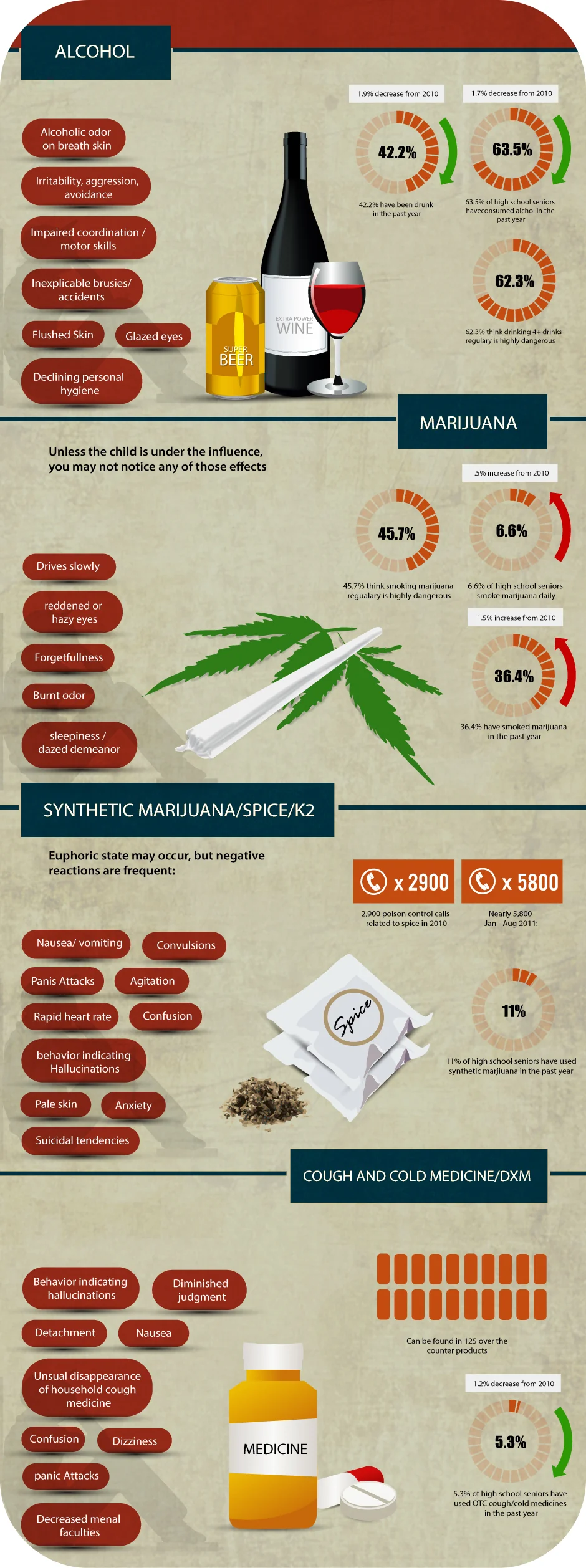
Recognising the Warning Signs
The teenage years are a period of growth and self-discovery but they can also be a time of experimentation and risk-taking. One of the major concerns parents face is the potential for drug use among their teens. The signs of drug use can sometimes be mistaken for normal teenage behaviour making it particularly challenging for parents to pinpoint a problem. Key symptoms to look out for include significant changes in mood, sleep patterns and social circles. A decline in academic performance, increased secrecy and neglecting responsibilities are also common indicators. Additionally, the presence of drug paraphernalia or the smell of drugs on clothing, breath or in the teen’s room are strong signs of drug use.
Physical and Emotional Symptoms
Drug use can manifest physically in various ways, including bloodshot eyes, unexplained weight loss or gain, deterioration in personal grooming habits and frequent nosebleeds, which could be a sign of snorted substances. Emotional symptoms can be equally telling and may include increased irritability, unexplained mood swings and a noticeable change in personality. These emotional changes are often accompanied by a decreased interest in family activities and a newfound preference for spending time alone or with a different set of friends. Substance abuse can also result in heightened paranoia and frequent bouts of laughter or silliness at inappropriate times.
Taking Action
If you suspect that your teen is using drugs, it’s important to approach the issue carefully. Accusations or confrontations can often lead to denial and increased secrecy. Open, non-judgmental conversations are a better strategy for understanding what your teen is experiencing. Consider seeking professional help from counsellors or healthcare providers specialising in addiction and adolescent behavior. Remember, early intervention is key to preventing a full-fledged addiction problem. By recognising the symptoms early and taking proactive steps, parents can better help their teens navigate this complicated and risky period in their lives.